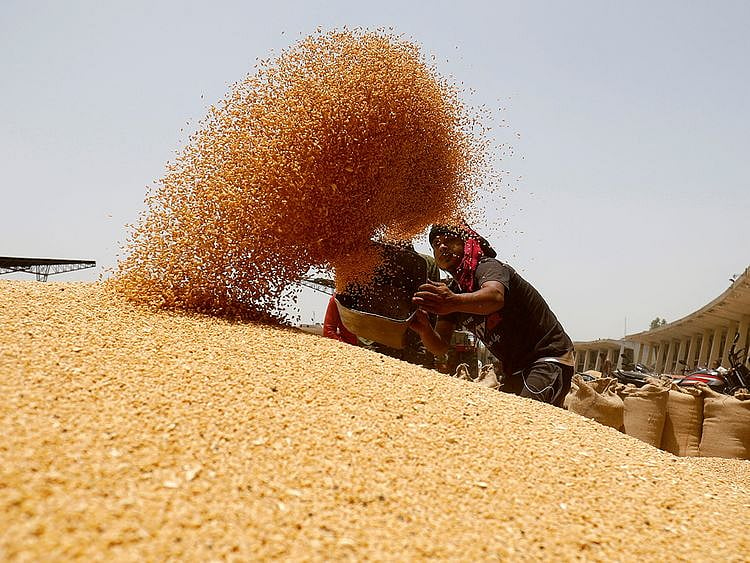New Delhi/Mumbai: India has been planning to relax norms to procure wheat from farmers amid untimely rainfall and hail which damaged the crop just before harvesting in key producing central and northern states, government officials and traders told Reuters.
The world’s second biggest wheat producer plans to buy 34.15 million tonnes of new-season wheat from local farmers to shore up state reserves after purchases dropped 53% last year to 18.8 million tonnes because of a poor harvest.
New season wheat has started arriving on the market, but the harvest has lost lustre in some districts because of the recent rainfall, said a senior government official, who declined to be named.
“We have allowed Madhya Pradesh state to procure wheat even with 10% loss in lustre. If required we would take call for other states and other parameters such as moisture,” the official said. The source didn’t wish to be identified in line with official rules.
The central state of Madhya Pradesh is the second biggest producer of wheat after the northern state of Punjab.
Wheat crop has also been damaged in Punjab and Haryana because of rainfall in the past few days and the government would be forced to make similar changes in the procurement rules for these states, said a New-Delhi-based trader with a global trade house.
Punjab, Haryana and Madhya Pradesh accounted for more than 98% of the total wheat procured in 2022.
Crop with lower lustre was getting sold at a big discount to good quality crop in the market and the government buying would stop this distress sale, the trader said.
The state-run agencies have procured 260,000 tonnes of wheat from farmers as on April 2, up from the last year’s 46,000 tonnes, another government official said.
“Buying would gain momentum in the next few weeks. It didn’t pick up desired momentum because of rainfall,” the official said.
The government-backed Food Corporation of India (FCI) buys wheat from farmers at state-set prices to run the world’s biggest food welfare programme.
Sign up for the Daily Briefing
Get the latest news and updates straight to your inbox
Network Links
GN StoreDownload our app
© Al Nisr Publishing LLC 2025. All rights reserved.
